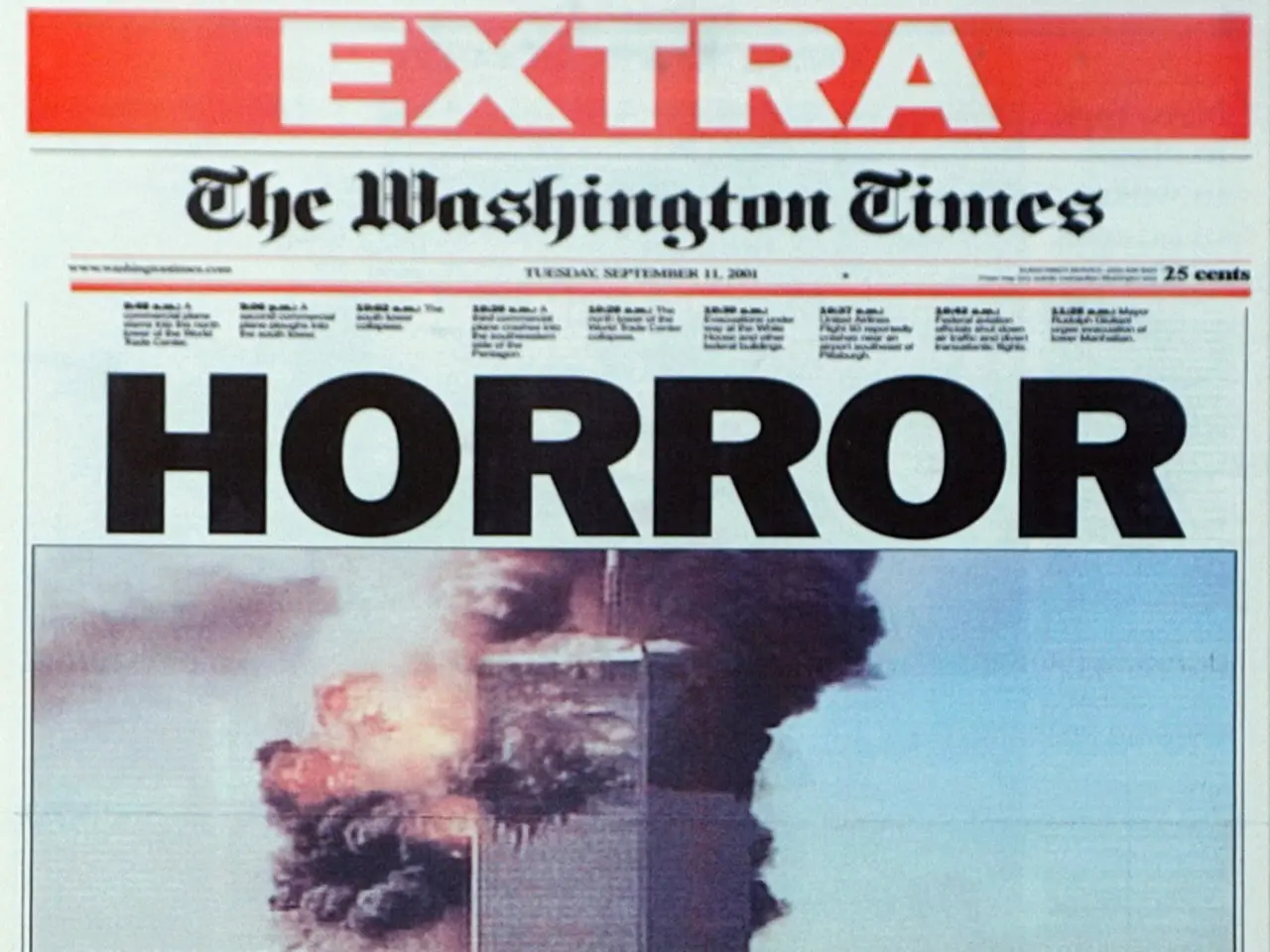Stock market index FTSE 100 reaches its record peak due to optimism over international trade agreements, causing a positive ripple effect across global markets.
In a significant development for global trade and financial markets, the US and Japan have announced a landmark deal to minimize tariffs on Japanese goods entering America. The agreement, hailed by President Trump as "the largest trade deal in history," has sent ripples of optimism through the financial world.
On Wednesday, the FTSE 100 in the UK closed at an all-time high, reaching a record-breaking 9080 points. The index, which includes many multinational companies with significant exposure to global trade, saw a 0.5% increase on the day.
The US-Japan deal has brought "some good vibes to markets," according to Laith Khalaf, head of investment analysis at AJ Bell. Carmakers were the biggest risers in the Japanese Nikkei, with shares in Toyota jumping by more than 14%.
However, the potential impacts of increased tariffs between major economic partners, such as the US and the EU, can be significant. Higher tariffs typically lead to increased costs of goods, reducing trade volumes and slowing global economic growth. They can also disrupt complex, cross-border supply chains, leading to inefficiencies and higher production costs.
Increased tariffs can also contribute to inflationary pressures, as they effectively act as a tax on imports, raising prices for consumers and businesses. Moreover, imposition of tariffs often leads to retaliatory tariffs, escalating into trade wars that further harm global trade and economic cooperation.
In the context of US-EU trade negotiations, rising tariffs can harden negotiation stances, making it difficult to reach agreements on trade deals or to resolve disputes. Tariffs often target sensitive sectors such as aerospace, automotive, and agriculture, which are key areas of negotiation between the US and EU.
Delays in cooperation on broader issues such as regulatory alignment, digital trade, and environmental standards can also result from increased tariffs. These delays could have long-term implications for the global economy and financial markets.
The FTSE 100 and Nikkei indexes may continue to experience increased volatility due to their exposure to multinational companies affected by tariffs and disrupted supply chains. Investors typically become cautious amid uncertainties in trade negotiations, impacting stock valuations and overall market performance.
Recent data indicates that the FTSE 100 is up over 10% this year, reflecting a general sense of optimism in the market. However, analysts warn that traders might still be underpricing the prospect of tariffs suddenly ratcheting up across the global economy when Trump's deadline for negotiations passes on 1 August.
The deal between the US and Japan, while a positive step, is just one piece of a larger puzzle. The future of global trade and financial markets will continue to be shaped by the evolving landscape of trade negotiations and tariff policies. As always, investors and businesses must remain vigilant and adaptable in this dynamic environment.
- The announcement of the US-Japan deal has sent optimism rippling through global financial markets, with the FTSE 100 in the UK reaching an all-time high.
- The US-Japan deal has resulted in increases in Japanese carmakers' stocks, with shares in Toyota jumping by more than 14%.
- On the other hand, potential impacts of increased tariffs between major economic partners, such as the US and the EU, can lead to slowing global economic growth, disrupted supply chains, trade wars, and inflationary pressures.
- As the deadline for US-EU trade negotiations approaches, analysts warn that traders might still be underpricing the prospect of tariffs suddenly ratcheting up across the global economy.
- The future of global trade and financial markets will continue to be shaped by the evolving landscape of trade negotiations and tariff policies, with investors and businesses remaining vigilant and adaptable in this dynamic environment.




